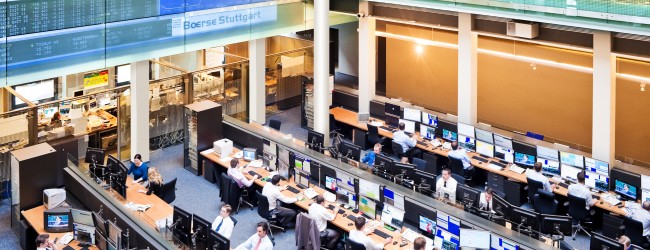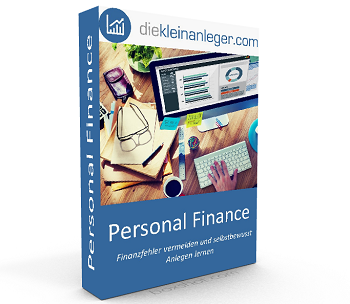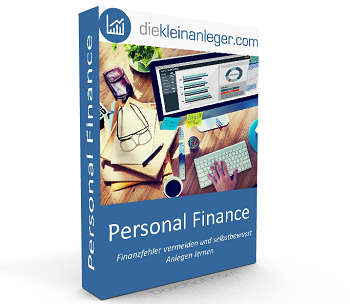Let’s assume you only want to invest in the largest German companies – or in other words, in the DAX. But you don’t want to invest in just one or two DAX companies, you want to invest in all of them.
If small investors now had to buy every share in the DAX, this would not only take a long time and cost a lot of money, but would also require a lot of capital. In order to offer small investors the possibility to buy all shares of a certain index, so-called EFTs or index funds were invented.
Investing in the entire DAX via index funds
An index fund buys all shares contained in an index (e.g. the DAX) according to their actual weighting in the index. Thus, you can buy all the shares of an index, in our case the DAX, with relatively low fees and also relatively little capital investment. So the small investor does not buy the individual shares himself/herself, but buys the fund that bundles the money and then buys the shares. The shares then belong to the fund and the fund belongs to the small investor. This means that the shares ultimately also belong to the small investor.
You can read more about index funds here.
So if you want to invest in the entire DAX, you can do so cost-effectively by investing in a DAX index fund. It is important to invest in a fully replicating fund (which actually buys the securities) rather than in a SWAP-based product.
The reason for this is that with swap-based index funds, if we stick to our DAX example, the shares of the DAX are not bought but are only “betted” on their price development by SWAP transactions.
In principle, this does not change anything in the way the index fund functions, as bets also represent the DAX. In the case of a bet, however, there is a counterparty that can go bankrupt. Thus, your fund can win the bet, but the betting partner can then be insolvent and the fund cannot assert its profit claims.
Due to the counterparty risk, we do not see any reason to buy a swap-based index when we can also get a fully replicating fund.
The best way to buy a DAX index fund is via the stock exchange
Index funds are usually also Exchange Traded Funds (ETFs). Although this may sound complicated, it merely means that these funds are traded on the stock exchange and therefore do not incur any front-end loads, but only the usual order charges.
In order to be able to trade on the stock exchange, small investors need a custody account at a broker.
If you don’t have a broker yet, you can simply open one for free.
We ourselves use the OnVista Broker, which does not charge any running fees and offers extremely favorable conditions.
Open an OnVista fund custody account
Generally, funds can also be purchased through your house bank or other financial institutions, although this usually involves outrageously high fees and custody costs. Therefore, this option is not recommended for small investors.
For further low-priced broker offers, we can recommend our broker comparison calculator.
Which DAX index fund is the best one?
Using the Morningstar ETF Rating Tool, we have compared the available DAX index funds and would like to present you with the two best results:
| Costs (TER) | WKN | |
| ComStage ETF DAX | 0,12 % | ETF001 |
| iShares DAX | 0,16 % | 593393 |
In both cases the costs are very limited, so it is now a matter of taste which of the two funds you buy. It will not change much in your yield, because 0.04% more or less yield per year is almost negligible.
What is not negligible, however, is through which broker and with what fees you buy these funds.
You can find more information on how we go about buying funds or general information about funds on our website.
Is it possible to buy all DAX shares at once?,Anzeige




